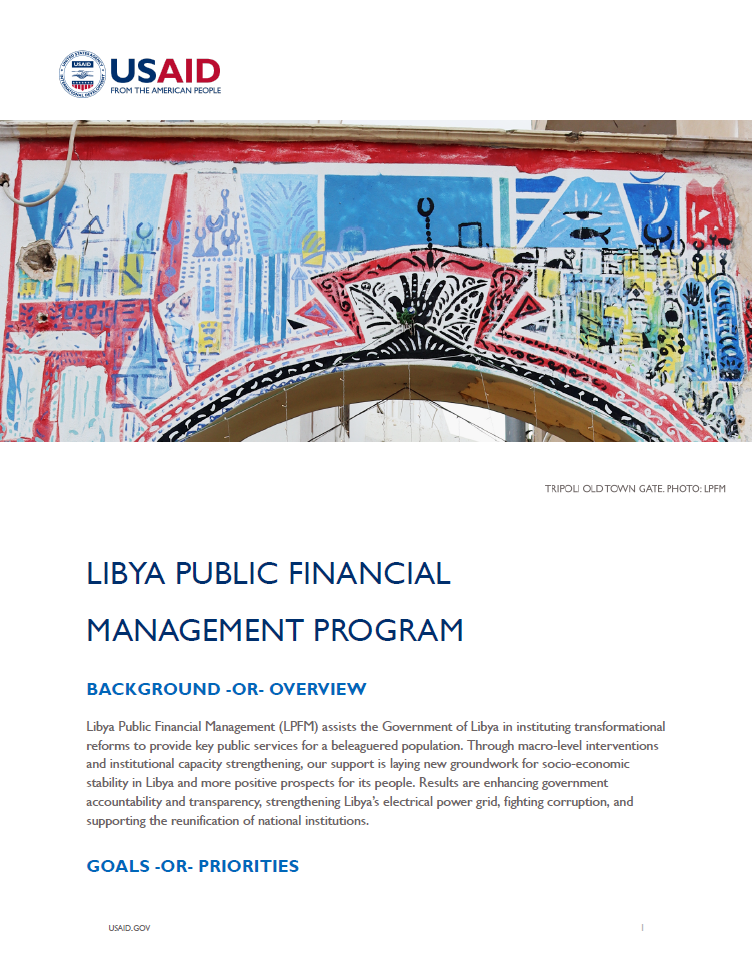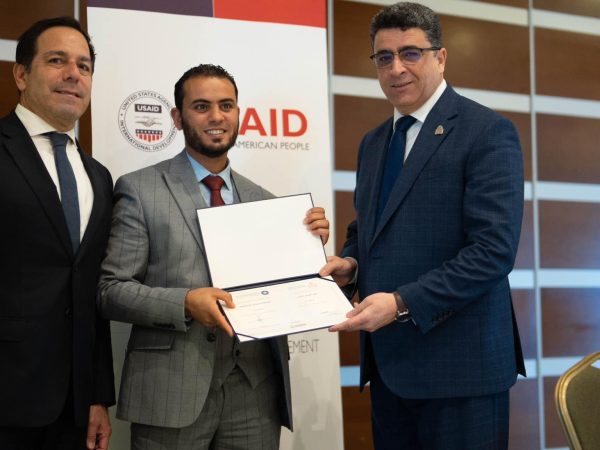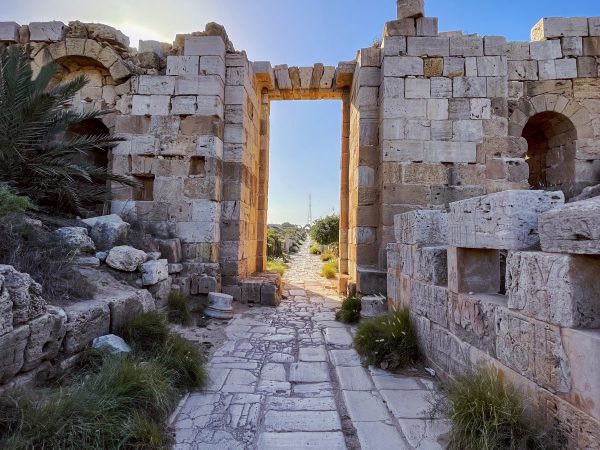Libya Public Financial Management Program (LPFM)
USAID Libya Public Financial Management Program (LPFM)
Libya | 2019 - 2024
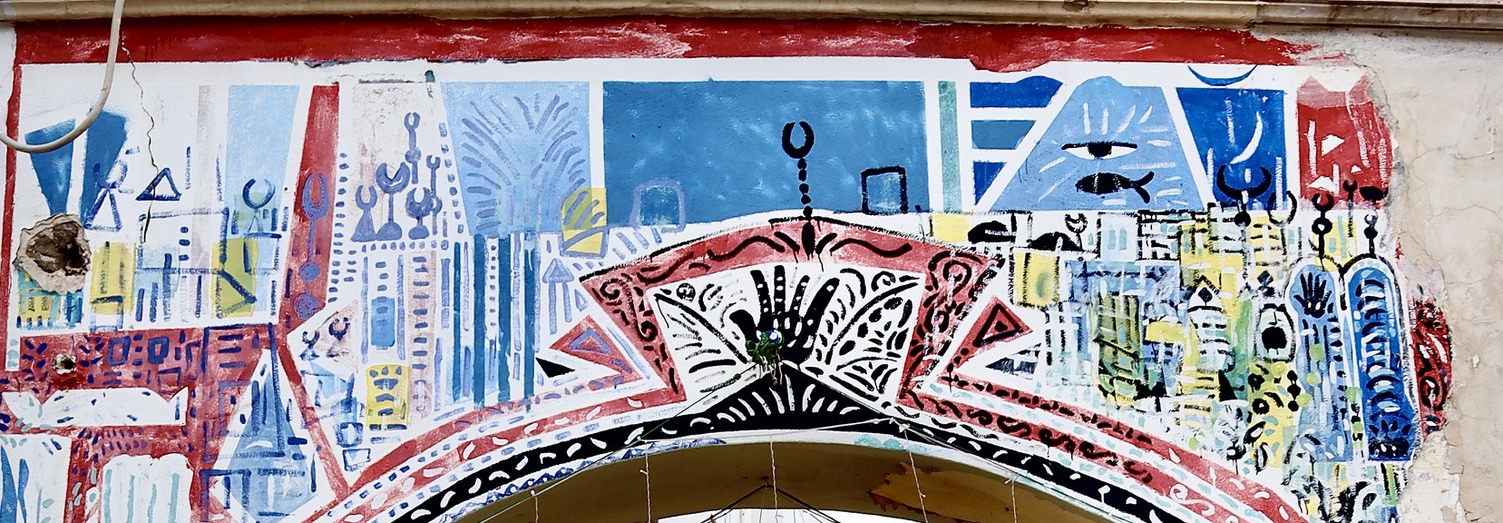
Overview
Libya is the fourth largest country in Africa and enjoys considerable wealth from its vast oil resources. However, years of fighting, corruption, and political turmoil have split the country in two, tearing apart the country’s social fabric, destabilizing its economy, and deteriorating government services. In this context, effective public financial management is essential to steering the country back onto a path of stability and growth—and propelling it towards a more prosperous and sustainable future for its people.
 Libya Public Financial Management (LPFM) is a five-year USAID-funded program assisting the Government of Libya in instituting transformational reforms to provide vital public services for a beleaguered population. Through macro-level interventions and institutional capacity strengthening, our support is laying new groundwork for socio-economic stability in Libya and more positive prospects for its people. Results are enhancing government accountability and transparency, strengthening Libya’s electrical power grid—including with clean energy solutions—and supporting the reunification of crucial national institutions.
Libya Public Financial Management (LPFM) is a five-year USAID-funded program assisting the Government of Libya in instituting transformational reforms to provide vital public services for a beleaguered population. Through macro-level interventions and institutional capacity strengthening, our support is laying new groundwork for socio-economic stability in Libya and more positive prospects for its people. Results are enhancing government accountability and transparency, strengthening Libya’s electrical power grid—including with clean energy solutions—and supporting the reunification of crucial national institutions.
 Libya Public Financial Management (LPFM) is a five-year USAID-funded program assisting the Government of Libya in instituting transformational reforms to provide vital public services for a beleaguered population. Through macro-level interventions and institutional capacity strengthening, our support is laying new groundwork for socio-economic stability in Libya and more positive prospects for its people. Results are enhancing government accountability and transparency, strengthening Libya’s electrical power grid—including with clean energy solutions—and supporting the reunification of crucial national institutions.
Libya Public Financial Management (LPFM) is a five-year USAID-funded program assisting the Government of Libya in instituting transformational reforms to provide vital public services for a beleaguered population. Through macro-level interventions and institutional capacity strengthening, our support is laying new groundwork for socio-economic stability in Libya and more positive prospects for its people. Results are enhancing government accountability and transparency, strengthening Libya’s electrical power grid—including with clean energy solutions—and supporting the reunification of crucial national institutions. Achievements
- Sound monetary targeting-based macro-financial policy framework
- A more stable, sustainable power grid in Libya, minimizing power outages, while reducing dependence on fossil fuels and encouraging renewable energy use
- Certification of at least 40 LAB auditors in accordance with international (INTOSAI) auditing standards
- Practical monetary policy tools & e-payments solutions implemented to expand access to finance through monetary policy tools & e-payments solutions
- A National Energy Efficiency Action Plan implementing clean energy technology and new energy efficiency standards to help reduce Libya’s electricity consumption by 20% over a 5-year period
- Digital transformation strategy developed/applied at LAB to transform auditing system/activities and pave the way for institutional reunification
- 32 municipalities (covering 2/3 of all Libyans) formulating new budgets, own source revenue, and citizen participation for more accountable local governance
- Libya’s banking supervision requirements aligned with global (Basel II Accord) best practice standards
- Stronger anti-money laundering/countering the financing of terrorism focus, systems, and capacity at the CBL and across the banking sector
- Application of a new Libyan Electricity Law introducing an independent sector regulator and private sector participation – including renewable energy solutions
- Five priority policy reforms adopted to improve the business enabling environment, especially for youth and women
- Increased transparency and public trust through strategic communications/outreach at both CBL and LAB
- Broadened array of digital payments & financial platforms boosting financial inclusion
- Enhanced foreign reserve/exchange rate management protecting financial stability & raising foreign reserve earnings
- Authorized Economic Operator (Trusted Trader) program introduced to facilitate trade flows and redesigned Customs Authority’s website offering greater transparency for customs regulations/processes
- System-wide plan to streamline Libya’s bloated public sector workforce, for major budgetary gains
Focal Points
- Public Financial Management
- Monetary Policy Reform
- Electricity Sector Reform
- Gender Equity
- Digital Transformation
- Climate Change
- Communications/Outreach
- Transparency/Anti-corruption
- Business Enabling Environment
0
LAB auditors INTOSAI certified
0
Municipalities formulating new budgets
In the News
- Libya lights up after years of power cuts |
September 3, 2023 - Increasing Libya’s Power Supply |
April 10, 2023 - Central Bank of Libya’s Economic Salon |
April 2, 2023 - Moving Forward to a Comprehensive Unification Process | March 3, 2023
- Libyan Audit Bureau celebrates graduation of 21 trainees | February 5, 2023
- Strengthening Libyan Audit Bureau capacity with best practice training | January 12, 2023
"There will be an excellent benefit for the people of the municipality of Tajoura, through implementing the municipal budget prepared in cooperation with Pragma to meet local needs."
Tajoura Municipality Official
“We have become fluent in IT auditing with Pragma, which is crucial in light of the digital transformation taking place in the public institutions and authorities that we oversee, reinforcing our plan to be a model institution.”
Director of Information Technology, Libyan Audit
“Transitioning Libya’s banking supervision requirements to meet global best practice standards of the Basel II Accords represents a quantum leap for enhancing the stability of the country’s banking sector.”
Senior Central Bank of Libya Official commenting on Pragma-led technical assistance
“The focus group discussions with Pragma introduced me to expert advice on running a business. They gave us tips and showed respect for us as business leaders, which was very motivating.”
Young Woman Business Owner
Previous
Next
Share This Page
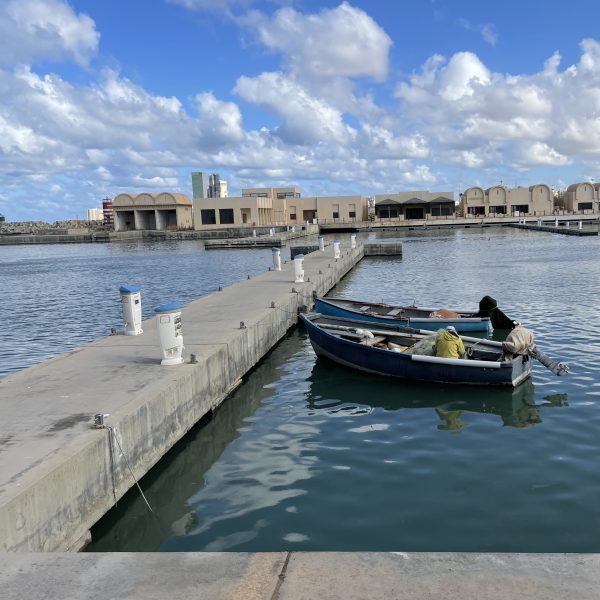




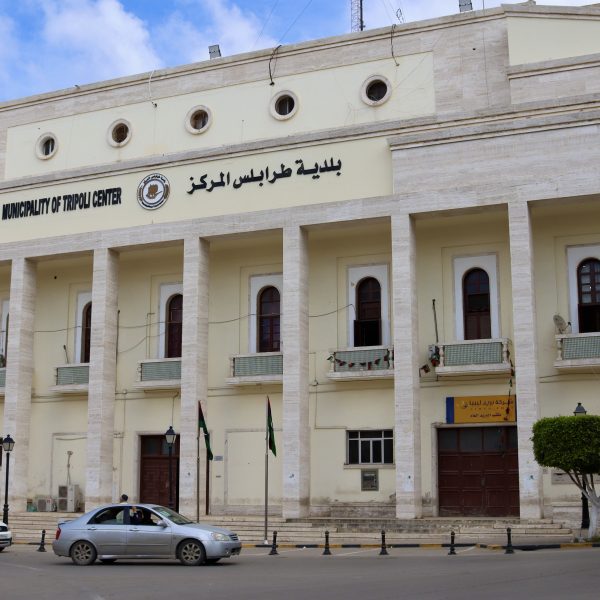
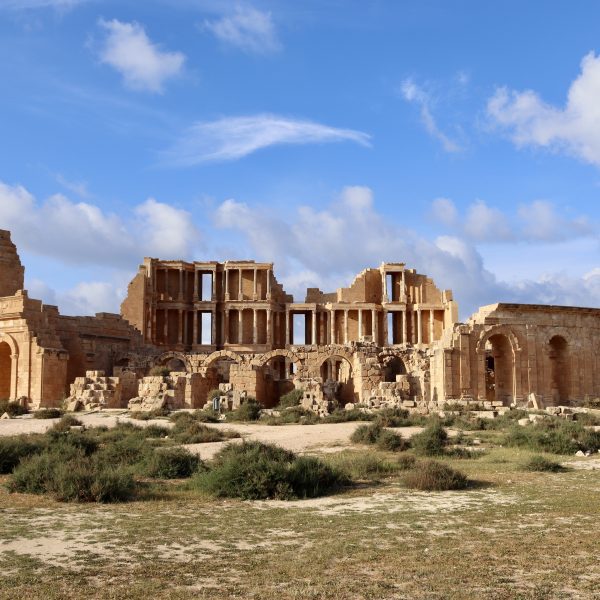
Previous image
Next image
Spotlights
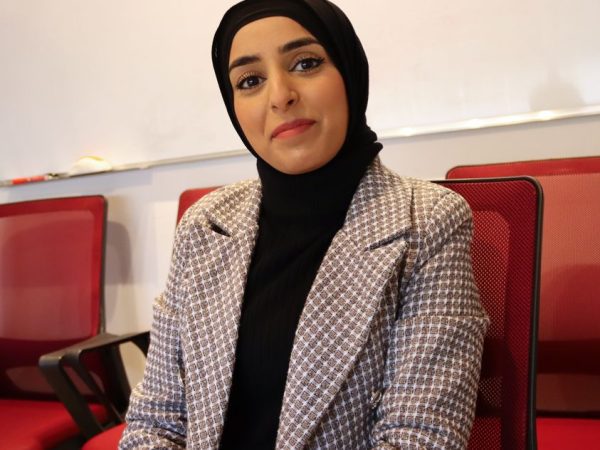
International Women’s Day Profile
March 17, 2023
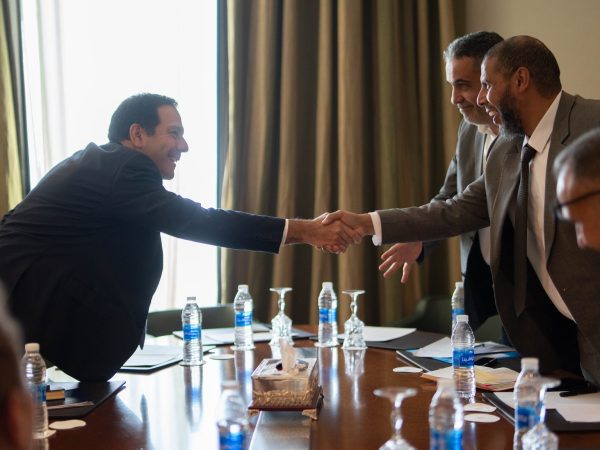
USAID/Libya Collaboration on Renewable Energy Benefits in Libya
February 27, 2023
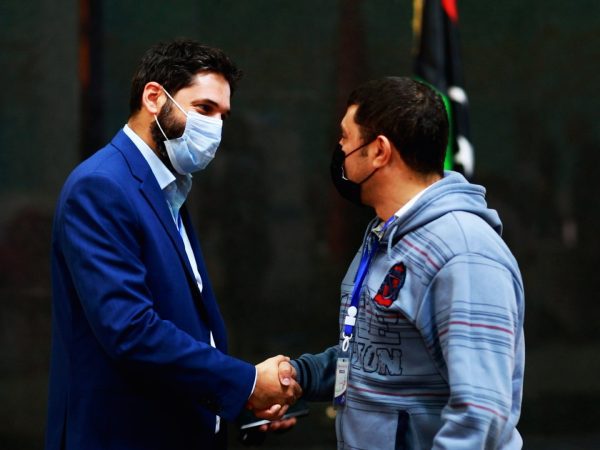
Giving hope to unity
February 21, 2023

